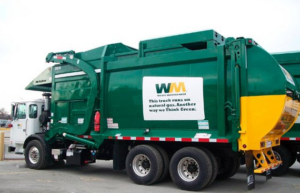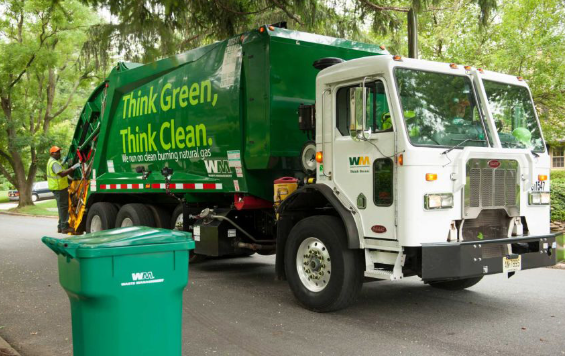Waste management is an indispensable aspect of maintaining a clean and sustainable environment. In recent years, waste management trucks have undergone a remarkable transformation, embracing cutting-edge technology and eco-friendly practices. This article delves into the modern waste management trucks and their pivotal role in revolutionizing waste disposal methods.
The Evolution
Waste management trucks have come a long way since their inception. Initially, they were simple, manual vehicles with limited capacity. However, as environmental concerns grew, so did the need for more efficient and eco-friendly waste management solutions. Today, waste management trucks have evolved into highly sophisticated machines equipped with advanced features, making waste disposal more efficient and environmentally friendly than ever before.
Efficient Collection Systems
Modern waste management trucks are equipped with state-of-the-art collection systems that optimize the collection process. Automated arms and grabbers allow for quick and precise waste pickup, minimizing human intervention. This not only enhances efficiency but also reduces the risk of workplace accidents, making waste collection safer for workers.
Eco-Friendly Fuel Options
Environmental sustainability is at the forefront of waste management today. Many waste management trucks are now powered by alternative fuels such as compressed natural gas (CNG) or electricity. These options significantly reduce greenhouse gas emissions, helping to combat climate change. Additionally, quieter engines reduce noise pollution in residential areas, enhancing the overall quality of life for communities.

Integrated Recycling Systems
Recycling has become a fundamental aspect of waste management. Modern waste management trucks are designed with integrated recycling systems. These systems allow for the separation of recyclable materials from general waste during the collection process. This separation ensures that valuable resources are diverted from landfills, reducing the strain on our environment.
Sustainable Materials and Design
In the past, waste management trucks were often made from non-sustainable materials. Today, there is a growing emphasis on sustainability in vehicle design. Many waste management trucks are built with lightweight materials and designed for fuel efficiency. This not only reduces the carbon footprint of these vehicles but also lowers operational costs for waste management companies.
Urban Planning and Traffic Management
Efficient waste collection is essential for maintaining clean and orderly cities. Waste management trucks play a crucial role in this aspect. Advanced routing systems and GPS technology help optimize collection routes, reducing fuel consumption and traffic congestion. This not only benefits the environment but also eases the burden on urban infrastructure.
Emerging Technologies and Autonomous Vehicles
The future of waste management trucks is likely to see even more innovations. Autonomous waste management trucks are on the horizon, offering the promise of further efficiency improvements and reduced labor costs. These vehicles can operate autonomously, guided by sensors and artificial intelligence, making waste collection more precise and cost-effective.
Cost Savings for Waste Management Companies
While the initial investment in modern waste management trucks may be higher, the long-term benefits are substantial. Reduced fuel consumption, lower maintenance costs, and increased operational efficiency translate into significant savings for waste management companies. These savings can be reinvested in further sustainability initiatives or passed on to customers.
Conclusion
Modern waste management trucks have undergone a remarkable transformation, emerging as powerful tools in the quest for sustainable waste disposal and environmental preservation. With efficient collection systems, eco-friendly fuel options, integrated recycling systems, sustainable materials and design, and advanced urban planning, these trucks are shaping the future of waste management.
As we look ahead to emerging technologies and autonomous vehicles, the waste management industry is poised for even greater efficiency and environmental benefits. By embracing these innovations, waste management companies can not only contribute to a cleaner environment but also enjoy substantial cost savings.



